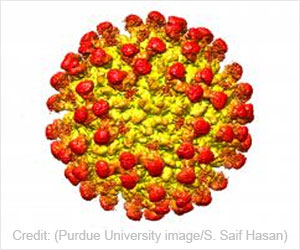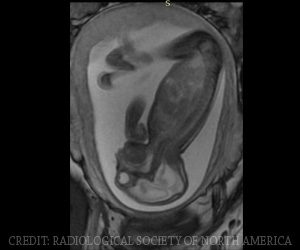Transmission of Zika virus to fetus shown to be reduced by hydroxychloroquine, a drug, approved for use in pregnancy to treat other conditions such as malaria.
- Zika virus infection is a mosquito borne illness that can harm the fetus and currently there are no drugs or vaccines approved for use in pregnancy to protect the fetus from getting infected.//
- Current study shows that hydroxychloroquine, an antimalarial drug could help prevent Zika virus transmission to fetus.
More recently, in 2015, doctors in Brazil noticed the birth of several babies with microcephaly indicating the possible spread of the virus in tropical America. Helpless as they were with no drugs or vaccines to treat the feared infection, all they could suggest were mosquito preventive measures such as wearing protective clothing or using repellent creams or sprays.
The current research team focused their attention on the placenta, which is the last barrier to protect the fetus from infection so to say, when other mechanisms fail to eliminate the virus and look for concrete solutions to protect both the mother and the fetus.
Protective Role of the Placenta - How it Works
The mechanism by which placenta performs its immune function is through activation of autophagy or cellular scavenging or clearing pathways that ultimately destroy and get rid of unwanted cellular proteins and debris as well as foreign agents such as microbes.
The study team wished to explore how the Zika virus managed to do this and proceeded with their research to get answers.
The following are the key observations made by the study team when they experimentally induced Zika virus infection in the placenta and noted their findings.
- Following Zika virus infection of the human placental cells, the genes promoting autophagy were activated or turned on.
- When drugs that promoted autophagy were added, the viral count in the placental cells surprisingly went up.
- On the contrary, when drugs that suppressed autophagy were added, the viral count in the placenta went down.
The team validated the above findings in two groups of pregnant mice, one with normal autophagy response and the others with suppressed autophagy response, after infecting them with the Zika virus.
- Five days after infection, both groups had the same amount of virus in their bloodstreams. However, the mice with suppressed autophagy had 10 times less virus in their placenta compared to their normal counterparts.
- There was less placental damage and less neurological damage to the fetus in mice with suppressed autophagy response.
Testing Hydroxychloroquine Drug In Pregnant Mice
The scientists then went on to test if administration of hydroxychloroquine to pregnant mice would reduce transmission of Zika virus infection to fetal mice. This was because hydroxychloroquine exerts some of its therapeutic effects (in other conditions) by suppressing autophagy.
- Female mice with a normal autophagy response were infected with Zika virus on day 9 of gestation.
- These mice were then divided into two groups, one dosed with hydroxychloroquine and the other group with placebo over the next five days.
- Mice treated with hydroxychloroquine showed significantly less virus in their placentas and fetuses. Also the damage to the placenta and fetus was significantly lower in comparison to mice not treated with hydroxychloroquine.
- The fetuses resumed normal growth and development in treated mice.
- However, the virus count in the bloodstream of both groups remained the same, indicating that hydroxychloroquine was able to protect fetal and placental damage inspite of circulating virus in the mother.
Conclusion - Safety Factor of Hydroxychloroquine Needs to be Evaluated
In conclusion, the current study strongly suggests that hydroxychloroquine protects against fetal Zika virus infection when administered during pregnancy. This drug is already approved for use in pregnancy for other conditions, notably malaria. However, since pregnant women may be required to take hydroxychloroquine for extended periods during pregnancy for protection against the Zika virus, further studies are needed to establish the safety of its longterm use in the mother and the fetus.
"We would urge caution but nevertheless feel our study provides new avenues for feasible therapeutic interventions," said Mysorekar, who is also co-director of the university’s Center for Reproductive Health Sciences. "Our study suggests that an autophagy-based therapeutic intervention against Zika may be warranted in pregnant women infected with Zika virus."
References:
- Chloroquine and hydroxychloroquine for cancer therapy - (https://www.ncbi.nlm.nih.gov/pmc/articles/PMC4905171/)
Source-Medindia













